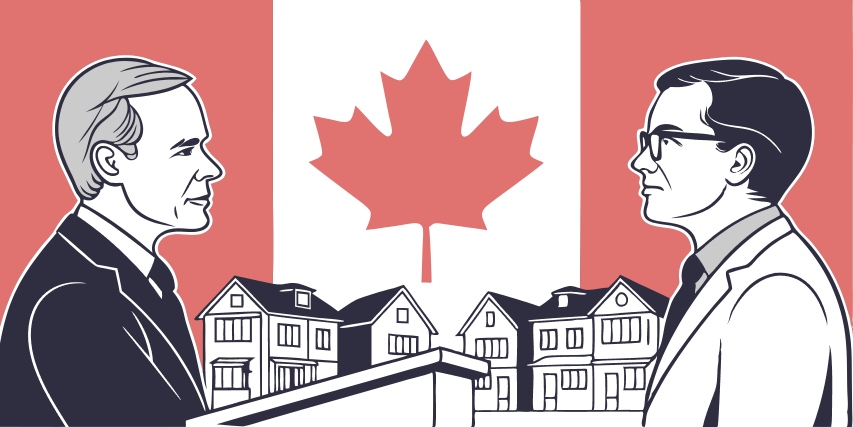Toronto’s Condo Rental Market Hits All-Time Lows: What It Means for Real Estate
Toronto’s condo rental market has reached an unprecedented low, with average rents experiencing significant declines and developers grappling with unsold inventory. For real estate professionals, investors, and tenants, understanding these shifts is essential to navigating this challenging landscape.
Declining Rents Across Major Markets
According to the January 2025 Rentals.ca Rent Report, the average asking rent for all residential property types in Canada dropped 3.2% year-over-year to $2,109 in December 2024. Toronto’s rental market took a notable hit, with average apartment rents falling 7.1% to $2,632—a stark contrast to the 2.1% increase seen in 2023.
- Three-bedroom units saw smaller declines in Toronto, dropping only 3.3% to $3,718.
- Shared accommodations faced a 9% decrease, with the average rent falling to $1,194, highlighting weakened demand in this segment.
The trends extend beyond Toronto, with Calgary rents dropping 7.2% and Vancouver’s market seeing a 5.8% decline. Meanwhile, Edmonton’s average rents rose slightly in 2024, but recent months have shown a downward trajectory.
Developer Challenges and Inventory Oversupply
The Toronto condo market is not just dealing with declining rents but also a growing oversupply of unsold units:
- Unsold Inventory: Data from Q3 2024 shows 23,918 unsold new condo units, up 16% year-over-year.
- Cancelled Projects: Between January and September 2024, 2,345 housing units from condo developments were canceled, with an additional 6,849 units in vulnerable projects across the Greater Toronto Area (GTA).
Developers are facing increased pressure as unsold inventory rises, forcing some to offer significant incentives or convert projects into rental housing. For instance, some property management companies (Maple Lead Property Management for example) are offering as much as three months’ free rent or signing bonuses of $1,500 to fill vacancies. Here are what some X/Twitter users have pointed out:
Market Pressures on Investors
Investors, who own a significant portion of Toronto’s condo market, are finding it increasingly difficult to achieve profitability. Key factors include:
- Price Adjustments: The average asking price per square foot for new, unsold condos fell to $1,524 in Q4 2024, a 10% drop from its peak in 2022.
- Financing Challenges: Many investors who purchased units at peak prices are now struggling to close transactions as market conditions shift.
- Profitability Concerns: Rising inventory and declining rents have created unfavourable conditions for return on investment, prompting some investors to hold off on purchases until the market stabilizes.
- Increasing Property Taxes: Mayor Olivia Chow has suggested a 6.9% property tax hike in the 2025 budget, marking the third increase in 3 years.
Opportunities Amid the Downturn
Despite the challenges, opportunities exist for various stakeholders:
- For Tenants: Declining rents and increased incentives make this an ideal time for tenants to negotiate favourable lease terms.
- For Buyers: Lower condo prices may present an opportunity for first-time buyers or those looking to invest for the long term.
- For Developers: Adjusting pricing strategies and exploring rental conversions can help mitigate losses and prepare for a potential market rebound.
The Path to Recovery
Experts predict that a market recovery will require several factors:
- Interest Rate Cuts: Further rate reductions from the Bank of Canada could make borrowing more affordable, boosting demand.
- Reduced Supply: Slowing condo starts and completions could help stabilize prices by addressing oversupply.
- Cost Management: Declines in construction costs and government fees could improve profitability for new projects.
Bullpen Research & Consulting projects an uptick in new condo sales in 2025, rising from 4,800 in 2024 to 6,300, as developers lower prices and borrowing costs ease. However, a full recovery may not materialize until the latter half of the decade, when undersupply drives unit prices back up.
What Real Estate Professionals Need to Know
- Monitor Trends: Stay updated on rental and sale price trends to provide accurate advice to clients.
- Advocate for Tenants and Buyers: Highlight the current opportunities for negotiating better lease terms or purchasing at lower prices.
- Adapt Strategies: Developers and agents should explore innovative approaches to marketing properties, such as highlighting incentives or long-term investment potential.
Final Thoughts
Toronto’s condo rental market is navigating turbulent times, with declining rents, oversupply, and challenges for developers and investors. However, these shifts also present unique opportunities for tenants and buyers. By staying informed and adapting strategies, real estate professionals can help clients make the most of the current market conditions while preparing for eventual recovery.
Unlock Your Seamless Closing Experience
Your Journey to a Worry-Free Closing Starts Here!



